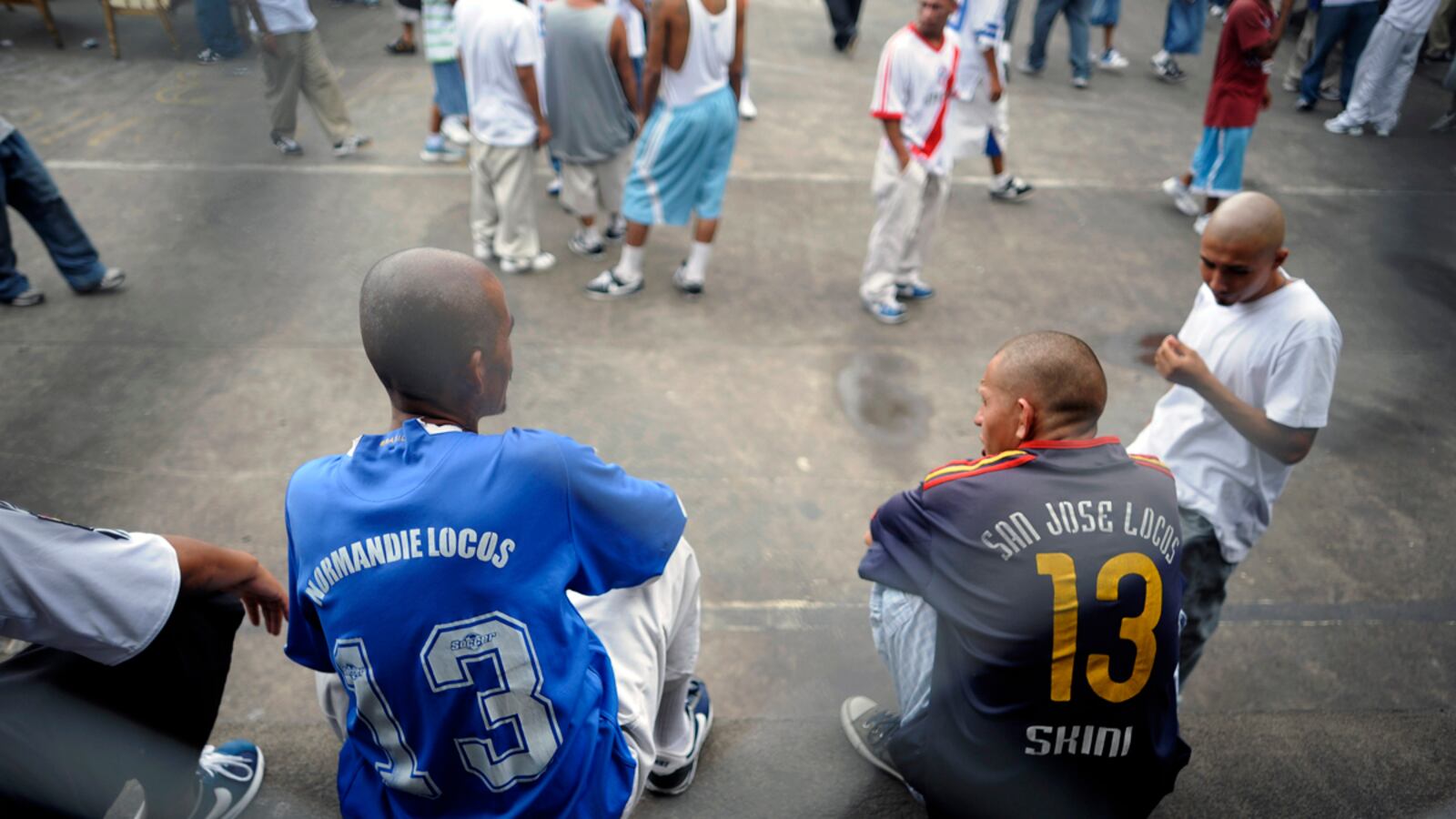The El Salvadoran street gang Mara Salvatrucha, or MS-13, is known more for its extreme violence than for its business savvy. But after years of arrests have largely failed to stem the gang’s spread around the United States, Treasury Department officials last week designated MS-13 a “transnational criminal organization”.
In applying the designation to a street gang for the first time, government officials hope to sever a crucial financial link between MS-13’s growing membership in the United States and its leaders in El Salvador, as well as squelch efforts by its members to strong-arm their way into American businesses.
“This designation allows us to strike at the financial heart of MS-13 and is a powerful weapon in our fight to dismantle one of the most violent, transnational criminal organizations operating today,” Immigrations and Customs Enforcement Director John Morton said on Oct. 11.
Treasury officials could not say how much money associated with MS-13 gang members is moving through the United States. But a departmental spokesman told The Daily Beast, “We know that money generated by local MS-13 cliques in the U.S. is consolidated and funneled to the group’s leadership in El Salvador.”
The gang’s violence has been well documented over the years. An FBI internal report from 2009, obtained by the American Civil Liberties Union and released in 2011 (PDF), described part-time gang members who carried out disorganized, erratic patterns of criminal activity, “including drug distribution, murder, rape, prostitution, robbery, home invasions, immigration offenses, kidnapping, carjacking/auto thefts, and vandalism.”
In Washington, D.C., where the gang is said by law enforcement to have a substantial presence, members in recent years have begun to engage in sex trafficking, according to The Washington Post. D.C. authorities said that the gang had begun to use violence as a means for protecting crime that pays, and not merely a way to deal with rivals.
The new Treasury Department designation comes amidst a rash of MS-13–related arrests across the country.
In late September, three alleged gang members pled guilty in Georgia to the murder of a drug dealer and promised to cooperate with prosecutors—a rare breach of the strict code of silence that shrouds the gang.

Also in September, federal prosecutors in New York charged 11 alleged gang members with multiple crimes, including the robbery and murder of a grocery-store owner.
And on Oct. 10, police in Rhode Island and Massachusetts announced that they had rounded up 11 suspected MS-13 members after a year-and-a-half investigation.
Since 2006, more than 4,000 MS-13 members have been arrested by the Homeland Security Investigations division, according to U.S. Immigrations and Customs Enforcement.
But despite the crackdown, authorities have struggled to stop the growth of MS-13, which often seeks a foothold in predominantly Hispanic communities by edging in on local businesses.
According to FBI documents obtained and released by the American Civil Liberties Union in 2011, MS-13 members have primarily targeted employment in construction, restaurants, delivery services, and landscaping—all industries that tend not to require immigration documents.
But there are signs that the gang is “actively working to recruit new members, move into new territories, and expand its networks,” a Treasury Department official told The Daily Beast on Monday. Specifically, officials are concerned that gang members could begin to obtain ownership in legal businesses or make other legitimate investments with U.S. companies.
Such an expansion would mark a dangerous moment in the growth of MS-13, which has not so far been known as a money-making enterprise, according to ICE special agent in charge James T. Hayes.
“We want to prevent them from taking the next step, we want to prevent them from becoming the next global cartel,” Hayes said.
The Treasury Department’s new designation is an important move toward that end, but it is unlikely to break the gang’s back, said George Grayson, a professor of Latin American politics at the College of William & Mary.
“Declaring a group a transnational criminal organization can pay off big time,” Grayson wrote The Daily Beast in an email. But Grayson said the U.S. government could run into problems getting cooperation from authorities in El Salvador, Guatemala, and other Central American countries, who may be too intimidated by the gang to take any significant action.
MS-13 has its U.S. roots in Los Angeles, where it formed among El Salvadorans who fled their home country’s civil war in the 1990s. After members were deported back to El Salvador, the gang used violence to consolidate its power there. Meanwhile, the deportations did little to stop the gang’s spread across the United States, and membership has continued to grow in places as far flung as Washington state and the suburbs of Long Island.
While precise estimates on the number of MS-13 members in the United States are not entirely reliable, ICE believes there are more than 10,000 active gang members spread throughout 46 states and Central America. Hayes said some estimates put the total membership at about 30,000 in the United States alone, if less-active members of the gang are included.
Four other gangs operating in the U.S. have previously been designated transnational criminal organizations: the Zetas, a Mexican drug cartel; the Japanese Yakuza; the Brother’s Circle; and the Neapolitan Camorra.






